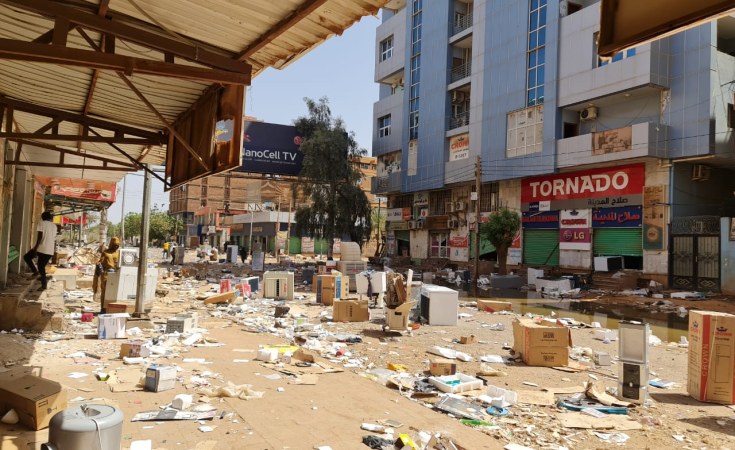Khartoum — In Khartoum, fighting between the Sudanese army and the Rapid Support Forces (RSF) has intensified. The regular military appears to have gained control of important centers in the Sudanese capital that were previously in the hands of rival militiamen. The army's offensive began on September 26 and since then it has managed to push the RSF militiamen out of the center of Khartoum and approach the Presidential Palace.
The army also took control of the two main bridges in the capital Khartoum, which connect Omdurman with Khartoum North and Khartoum.
The fighting is concentrated in the Al-Muqrin urban area in the center of the capital, where the army is said to have taken over the headquarters of the Sudanese Central Bank. The Rapid Support Forces took control of the Sudanese Central Bank in mid-April 2023, while the army-backed government moved the Central Bank's operations to the city of Port Sudan, the provisional capital of the executive.
Meanwhile, numerous buildings were seriously damaged in the fighting, and there is no information on the number of casualties.
If the army succeeds in extending its military influence to the central region of Khartoum, the loss of this region could mean that the Rapid Support Forces lose important assets in the negotiations, which are currently blocked due to the army's refusal to participate (see Fides, 22/8/2024).
Fighting is also raging in Darfur, the RSF's stronghold. In particular, in El Fasher, the capital of North Darfur, the army's last bastion in the region, which is besieged by the RSF, which continues to bombard the city, causing civilian casualties.
The humanitarian situation is further aggravated by the cholera epidemic in Kassala state and the dengue epidemic in Khartoum state.
The war, which broke out in April 2023, has displaced more than 13 million Sudanese inside and outside the country, killed 20,000 people and injured 33,000, and now threatens the food security of 25 million inhabitants, five million of whom are on the brink of famine.


